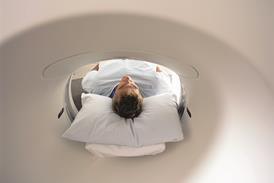Multiple failings in trust’s handling of £20m Roche deal, leak reveals

Multiple failings have been identified in how a leading cancer trust entered into a £20m research partnership with a large pharmaceutical company, and how bosses then reacted to concerns raised by staff.
You need to be a subscriber to read more

Subscribe for unlimited access
With a HSJ subscription you’ll unlock:
- All HSJ news by sector, topic & region
- Breaking News announcements
- App for mobile and offline reading
- Comment and Daily Insights newsletters
- Regional roundup newsletters
- Unrestricted access to ‘Ask HSJ’ - AI assistant - AI assistant
- 10 expert briefings every fortnight (Premium only)
Already a subscriber? Sign into your account here



















